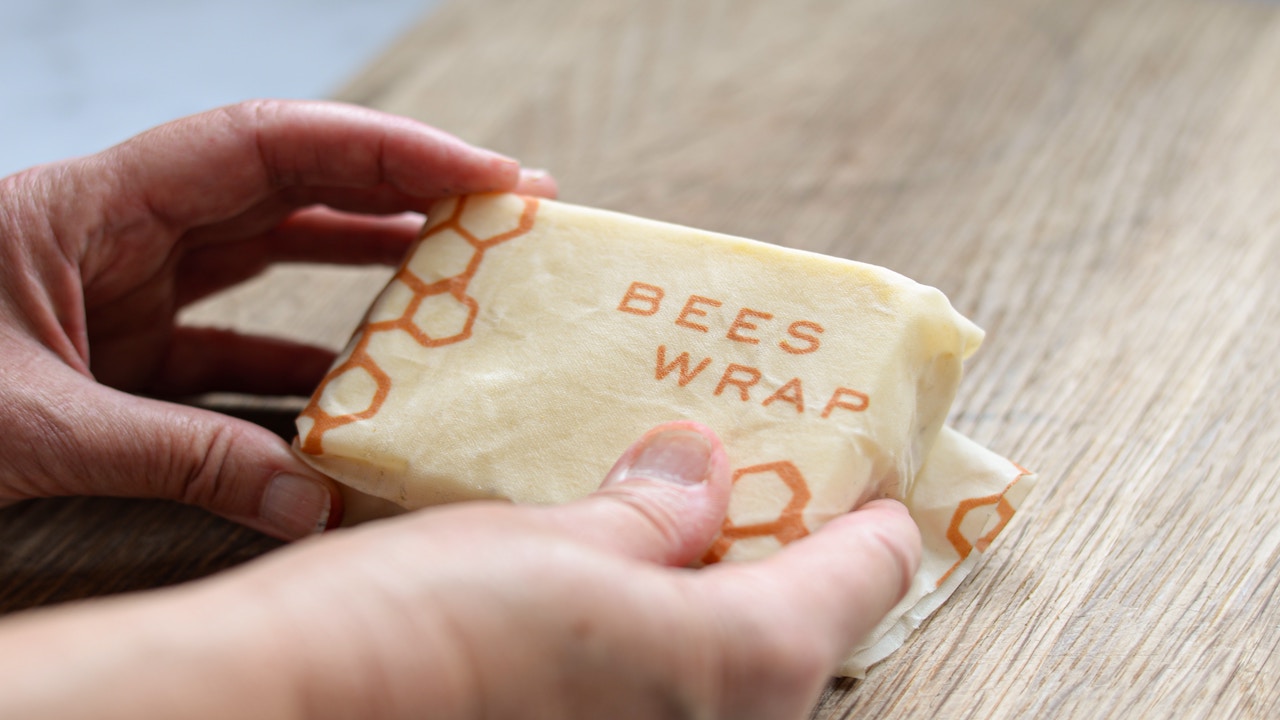Plastic wrap is a common household item with a significant environmental impact due to its non-biodegradable nature. To reduce plastic waste and embrace a more sustainable lifestyle, consider making your own beeswax wraps or exploring other eco-friendly alternatives. Here are some tips to get started:
Beeswax Wraps: Beeswax wraps are a fantastic alternative to plastic wrap as they are reusable, biodegradable, and provide a natural way to preserve food. To make your own, cut a piece of cotton fabric to your desired size and melt natural beeswax pellets or bars on it using low heat. Use a brush to spread the melted wax evenly. Once cooled and hardened, the wraps can be used to cover bowls, wrap sandwiches, or store fruits and vegetables.
Vegan Wax Wraps: For those seeking vegan options, you can make wax wraps using plant-based waxes such as soy or candelilla wax. The process is similar to beeswax wraps, but you substitute the beeswax with the vegan alternative.
Silicone Food Storage Bags: Silicone food storage bags are a reusable and durable alternative to plastic bags and wrap. Made from food-grade silicone, they are heat-resistant, freezer-safe, and easy to clean. Use them to store leftovers, pack snacks, or even sous vide food.
Glass Containers and Mason Jars: Opt for glass containers and mason jars for storing food. They are reusable, free from harmful chemicals found in some plastics, and provide a clear view of the contents. Glass containers are suitable for storing a variety of foods, from leftovers to pantry staples.
Cloth Bags and Pouches: Replace plastic bags with cloth bags and pouches for storing produce, bread, and bulk items. These eco-friendly alternatives can be easily washed and reused, reducing the need for disposable plastic bags.
Upcycled Food Packaging: Get creative by repurposing food packaging as storage containers. Clean and reuse glass jars, coffee cans, or metal tins to store dry goods like grains, nuts, or spices. This reduces waste and gives a new life to items that would otherwise end up in the trash.
By embracing alternatives like beeswax wraps, silicone bags, glass containers, and upcycled packaging, you can significantly reduce your reliance on single-use plastics. These sustainable options not only minimize environmental impact but also contribute to a more organized and aesthetically pleasing kitchen. Let’s make a conscious effort to eliminate plastic wrap from our lives and embrace eco-friendly alternatives that support a greener future.
Photo by Jack Cole on Unsplash
Written by Carole Wilay ’25

